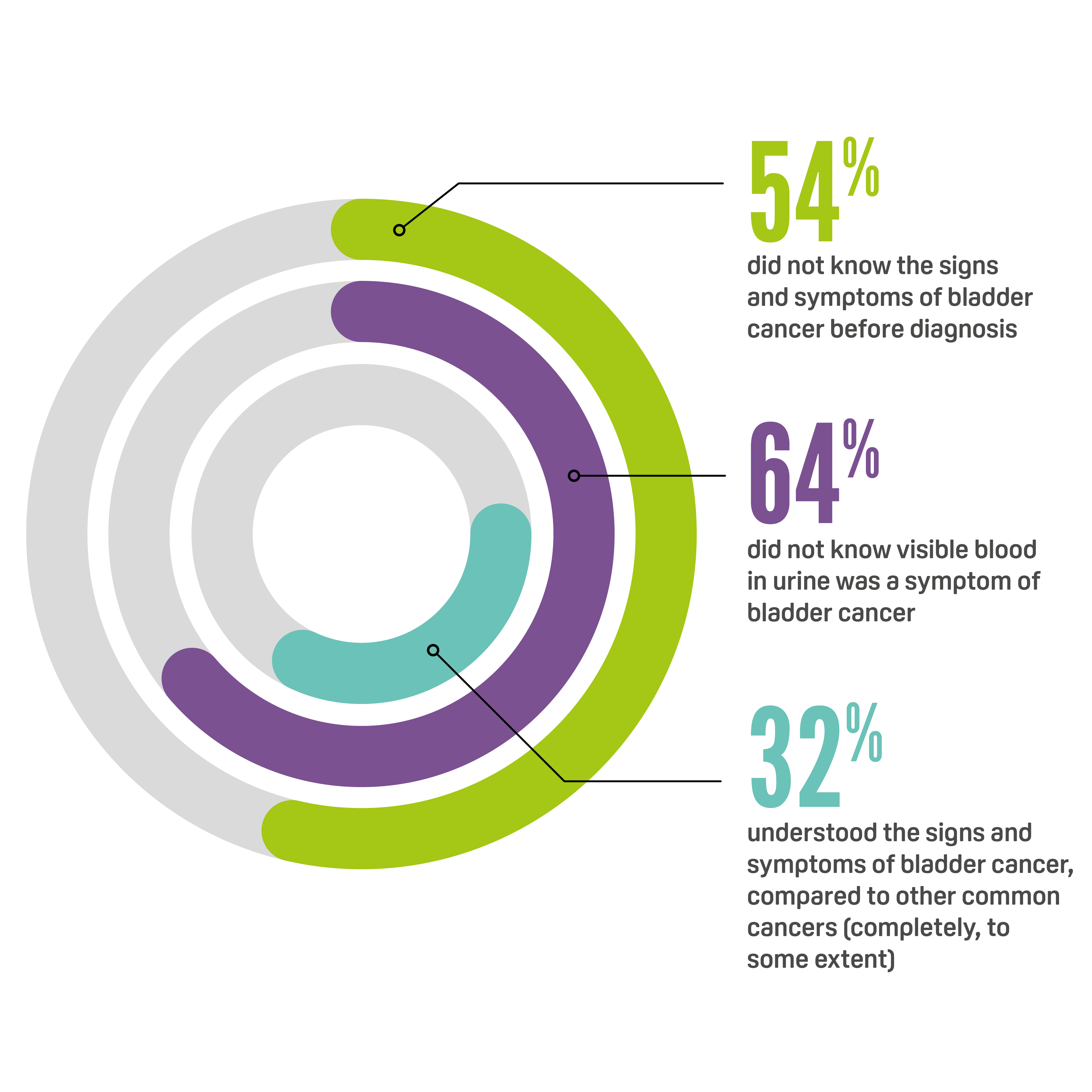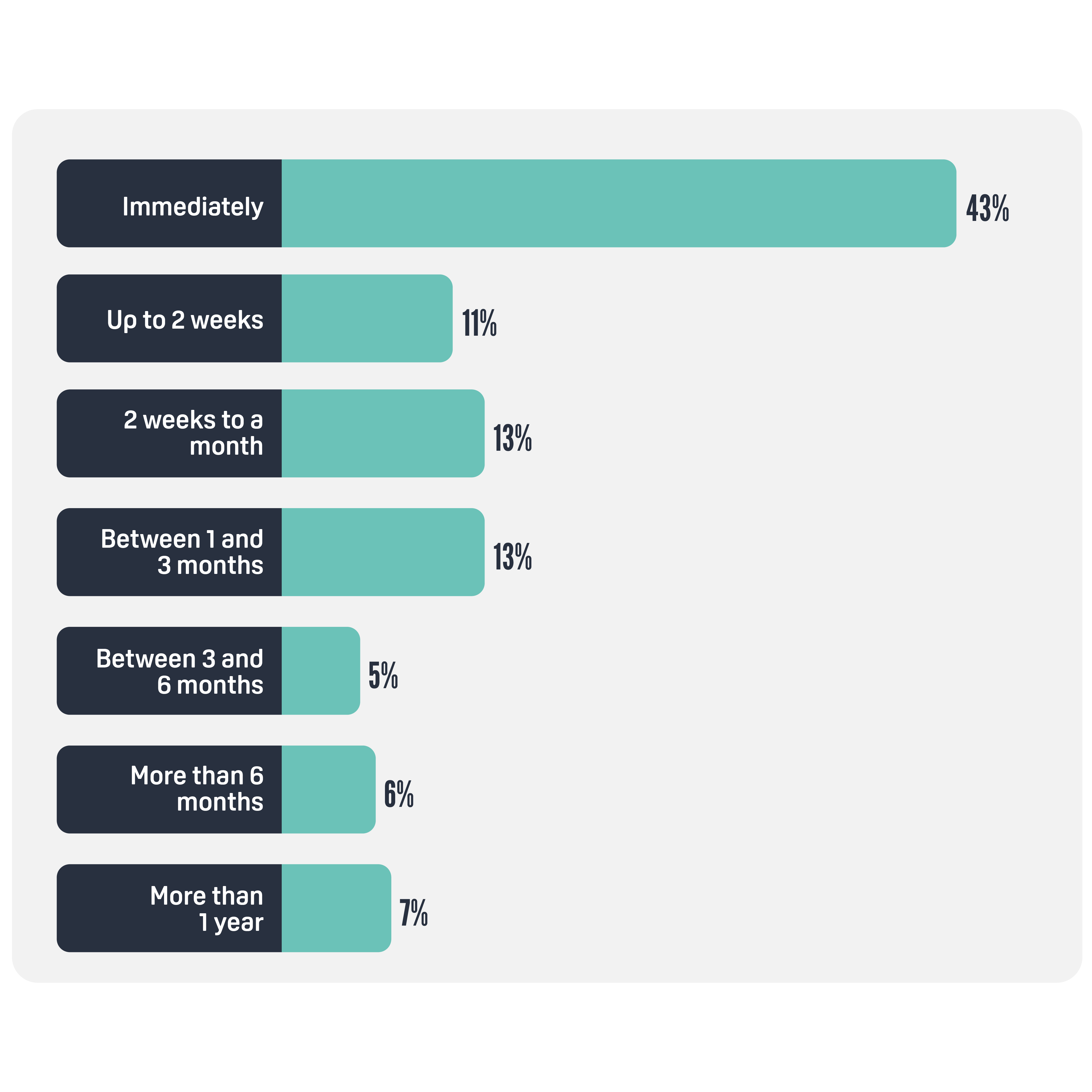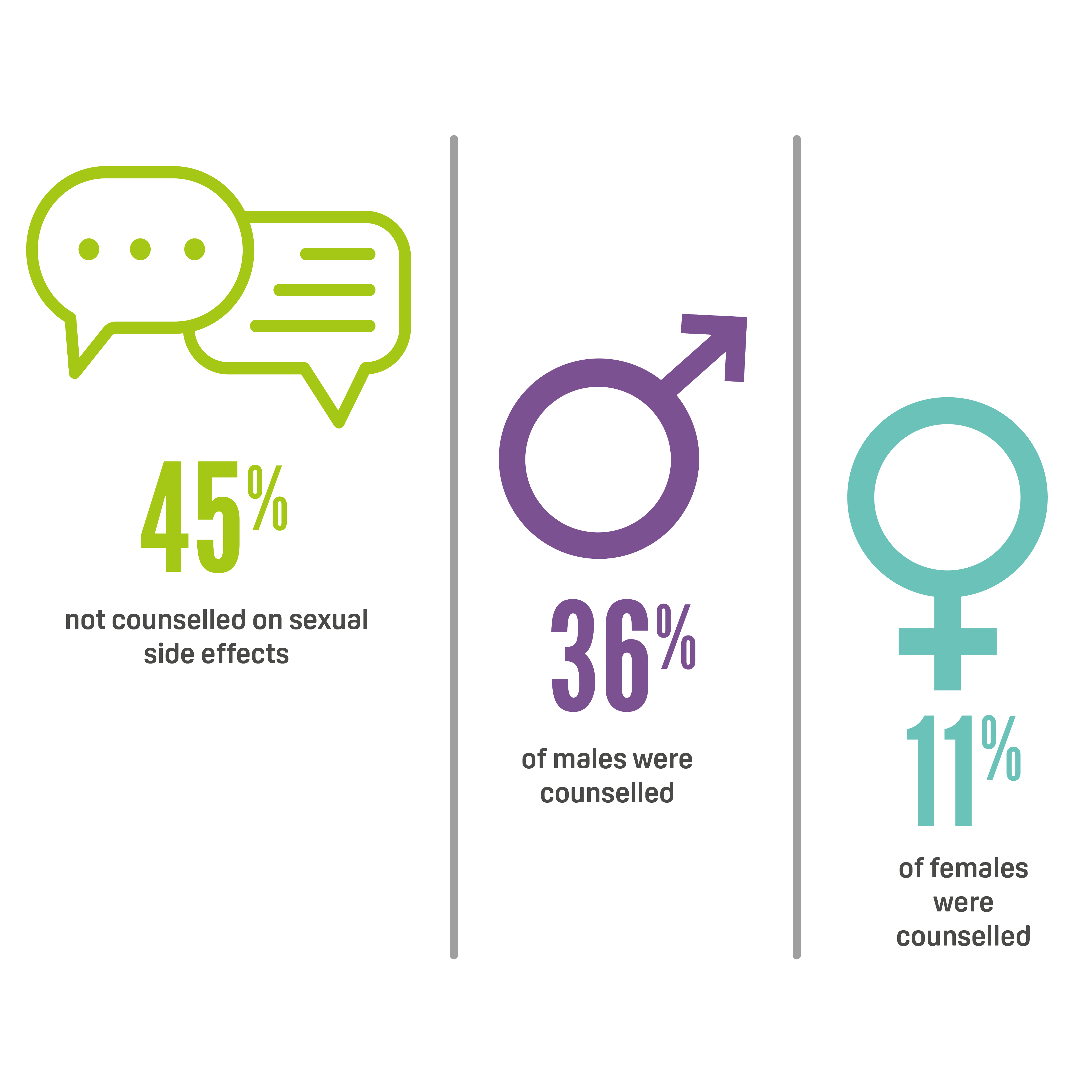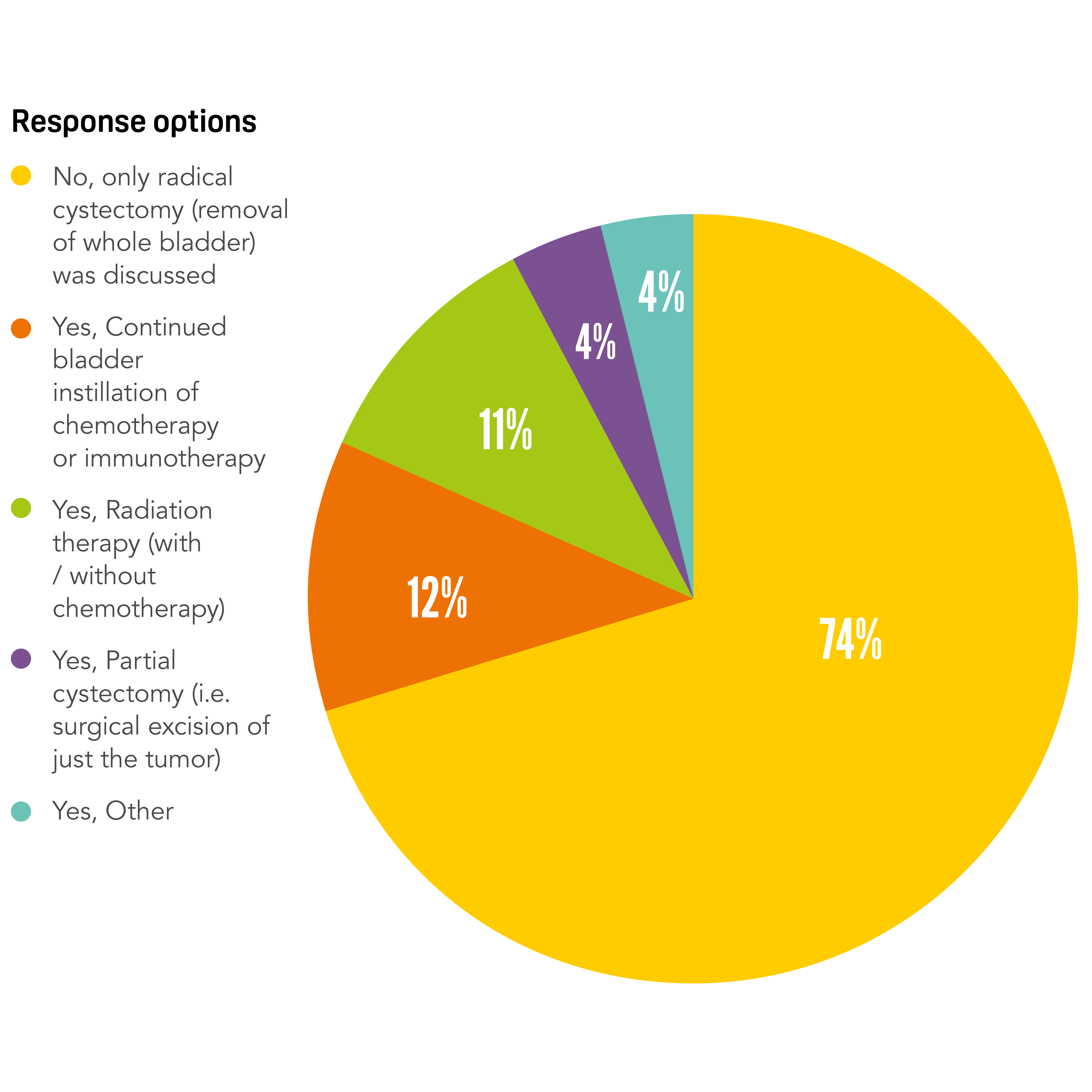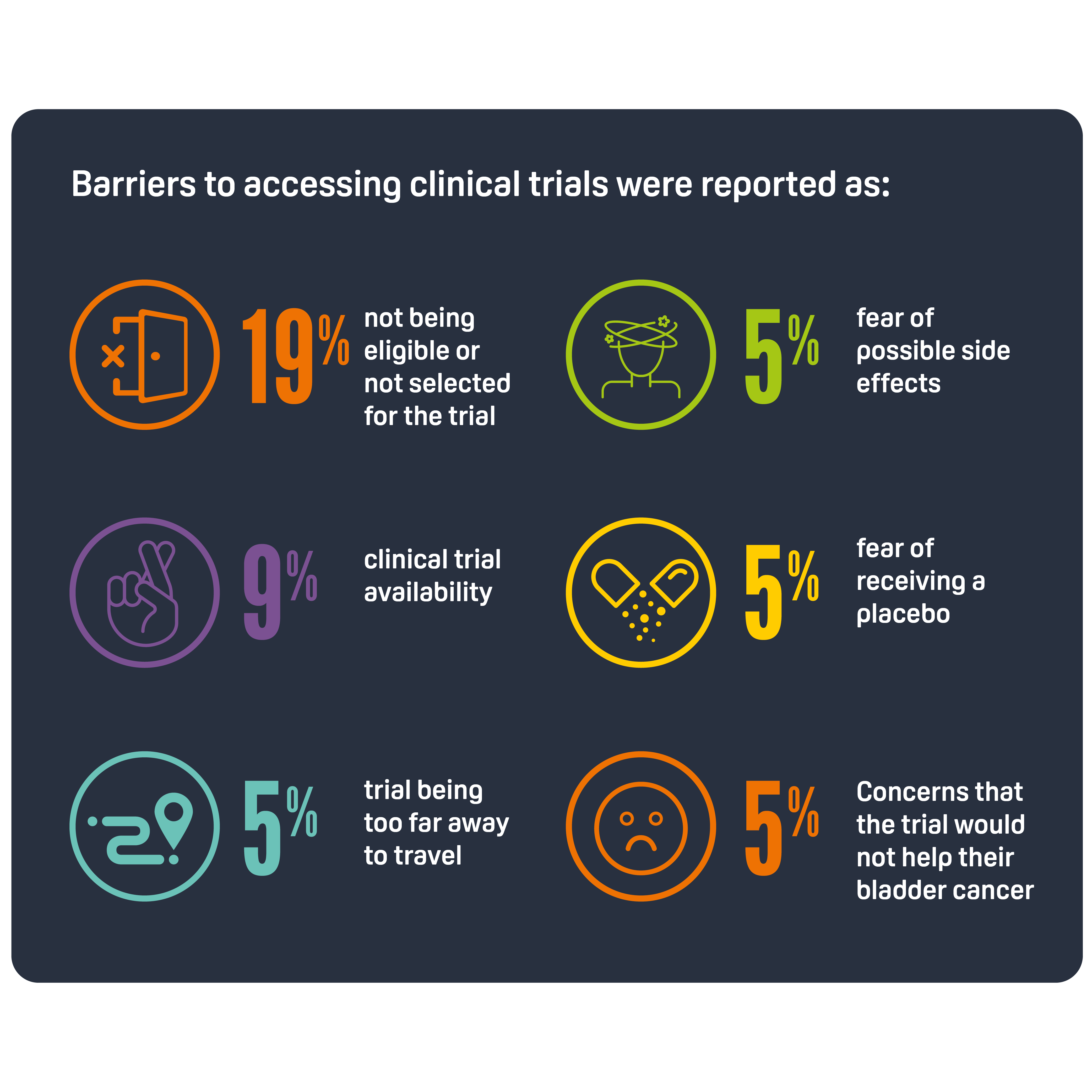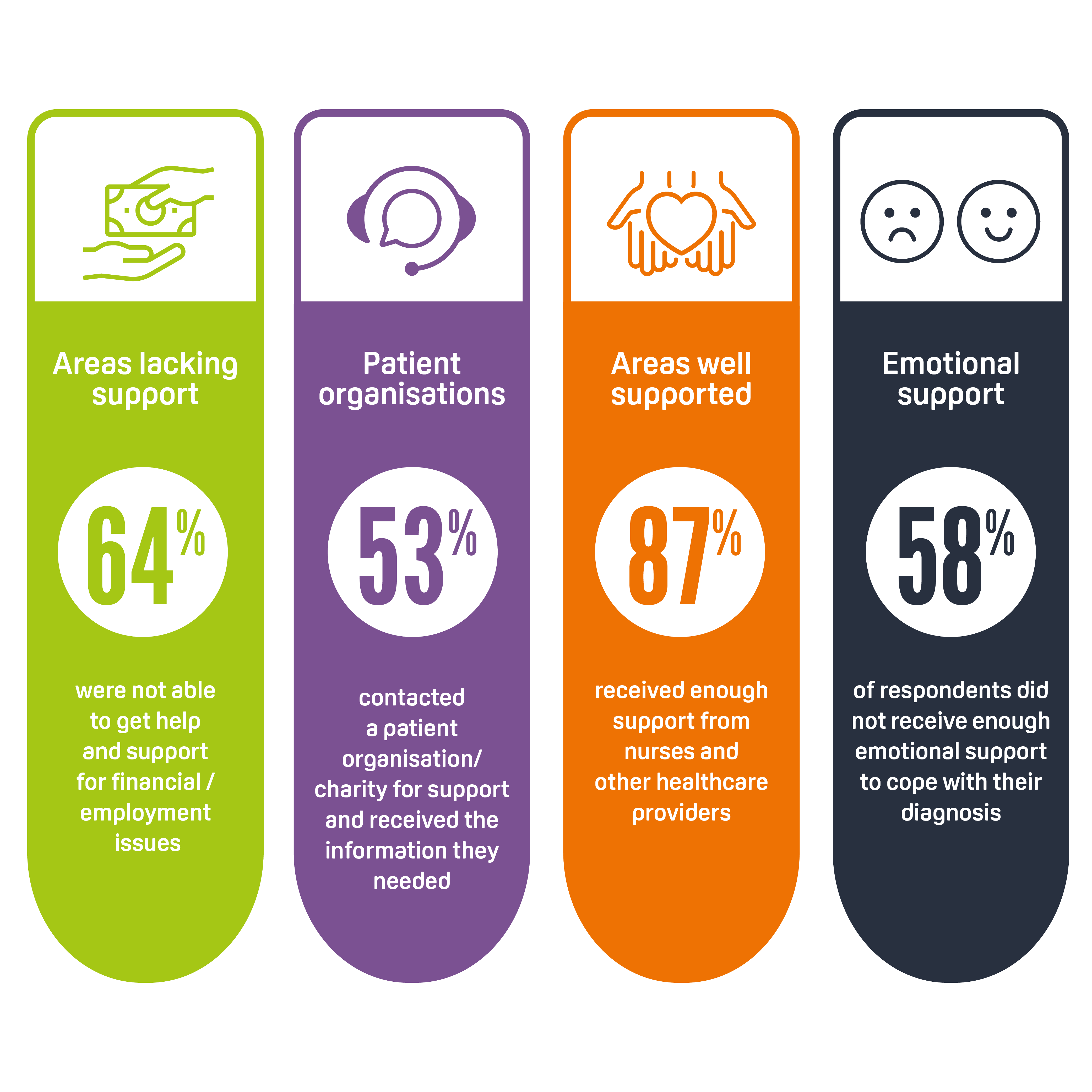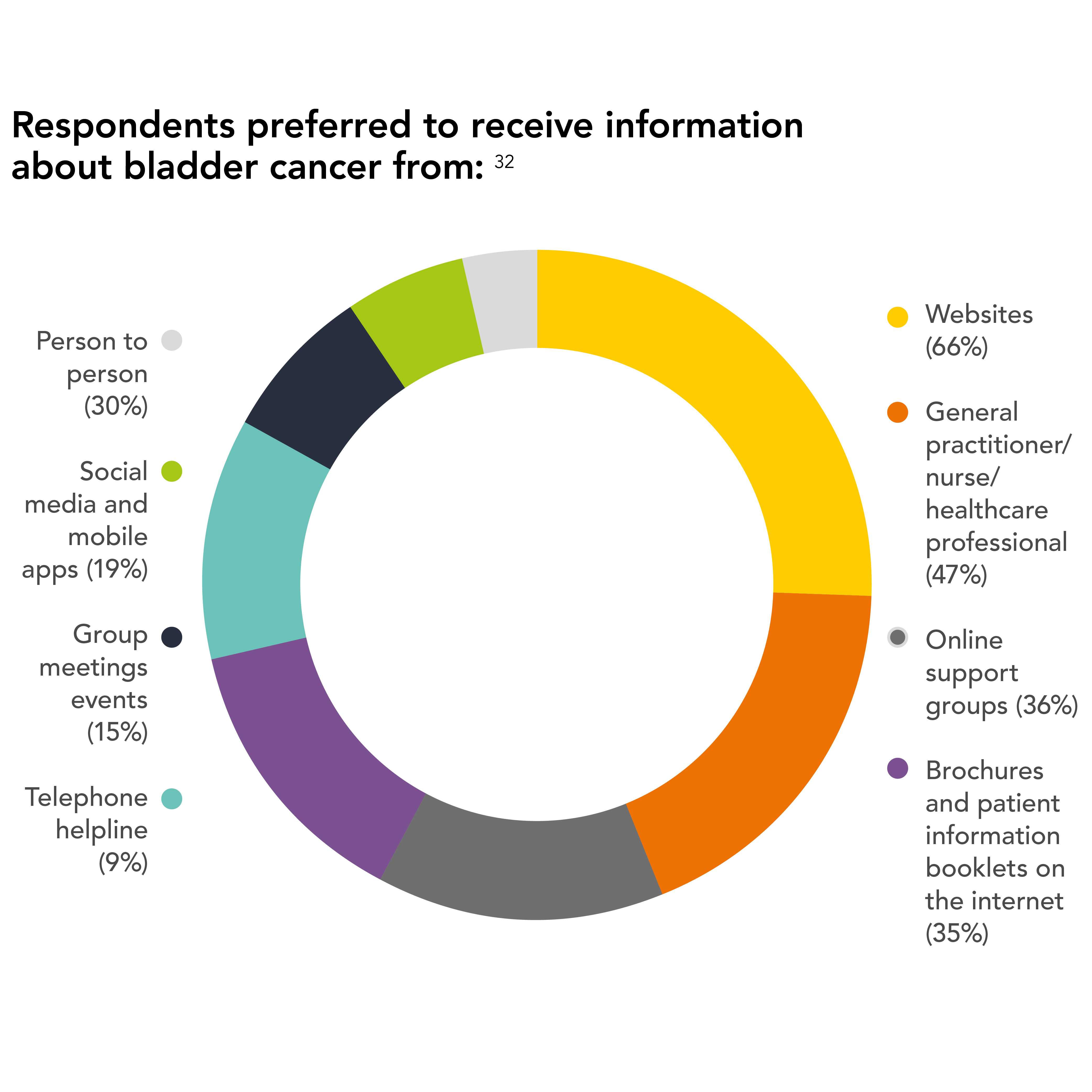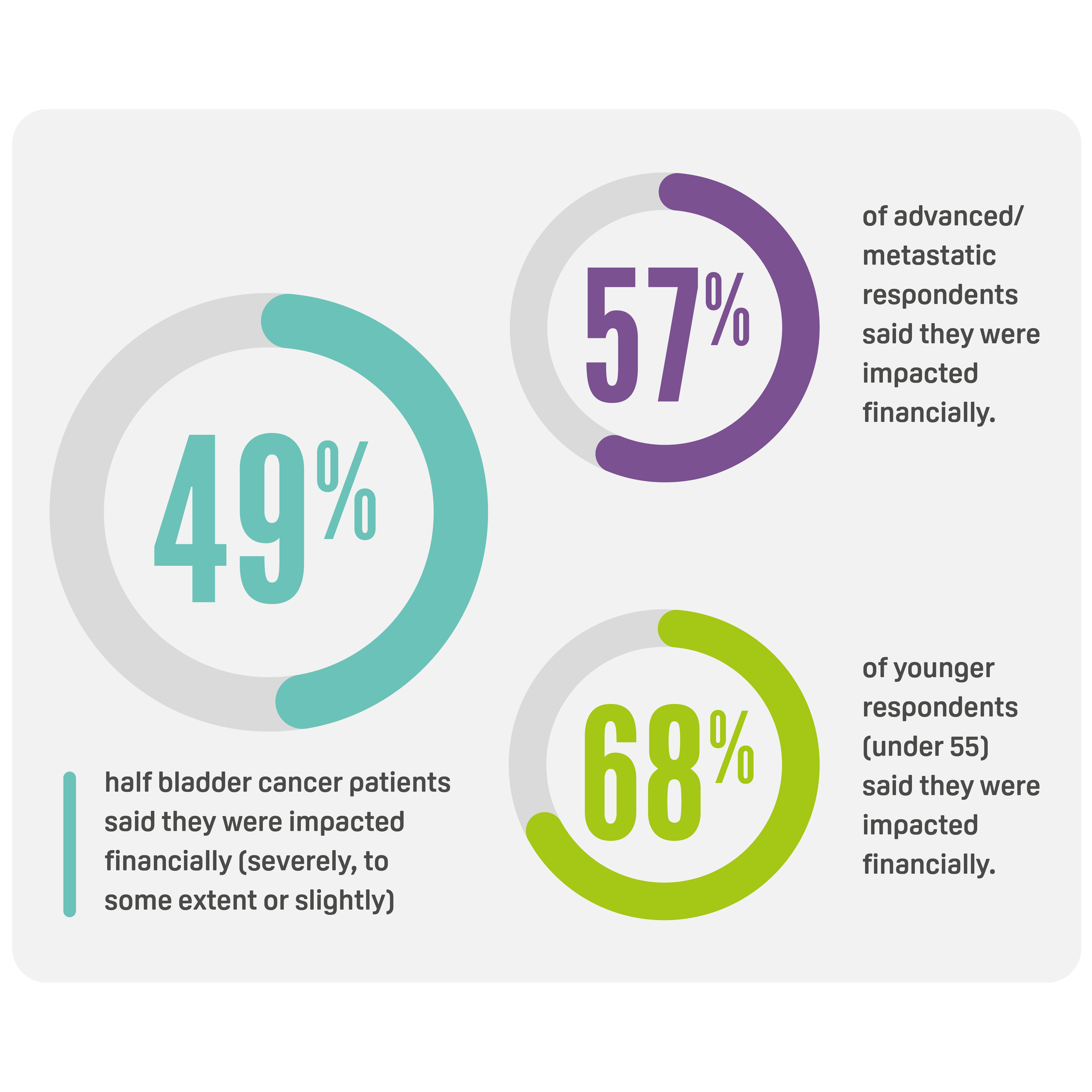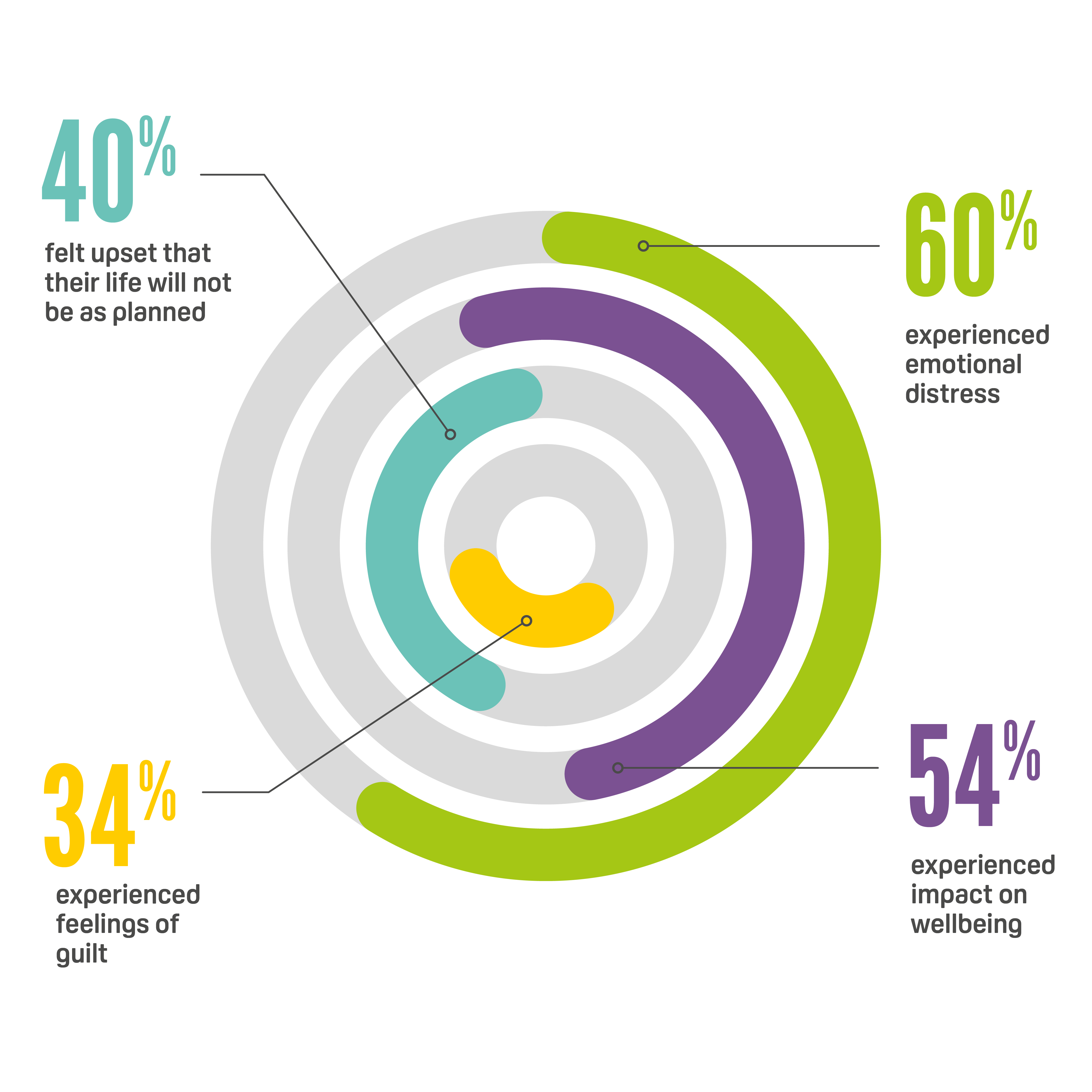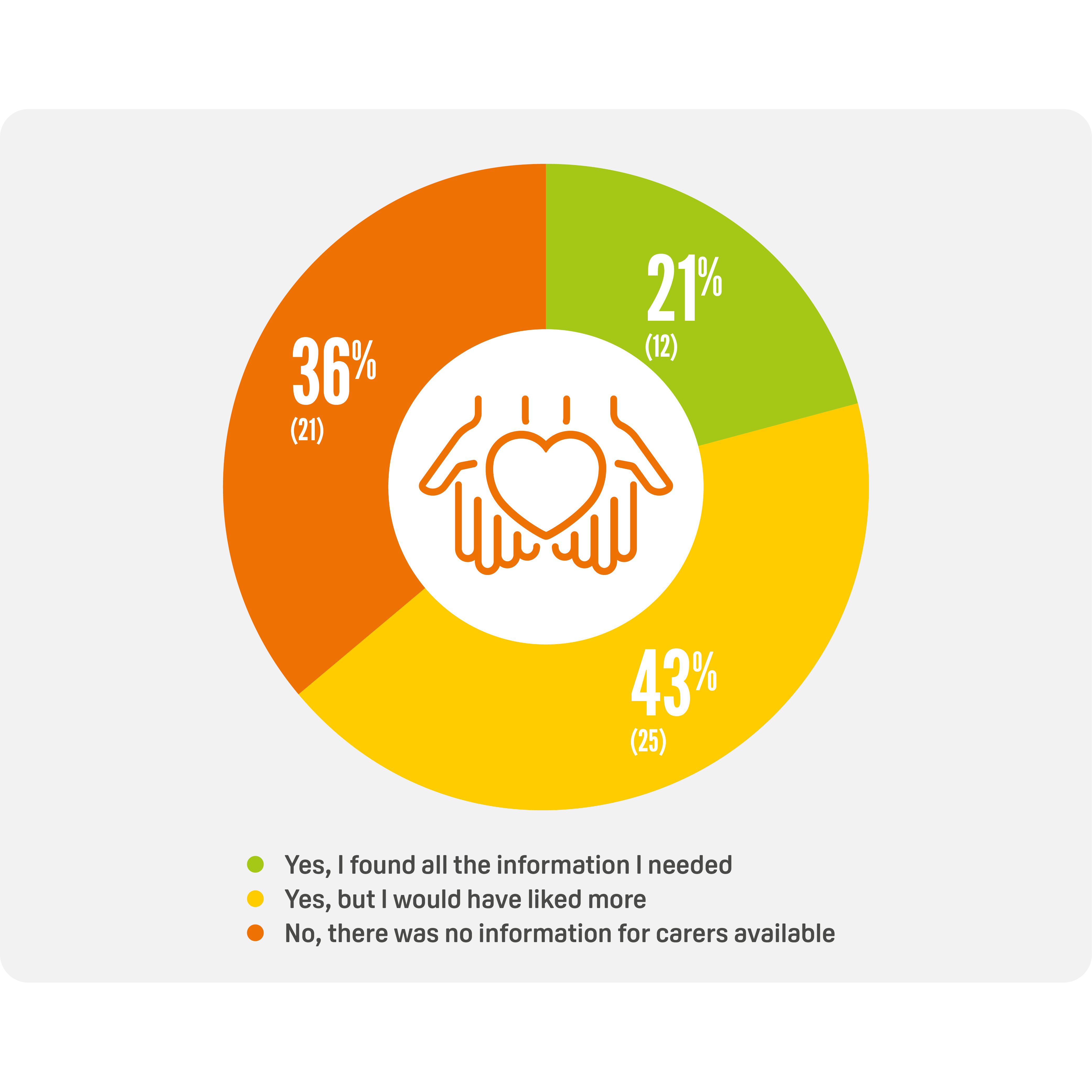Bladder Cancer Patient & Carer Experience Survey
About Bladder Cancer Patient & Carer Survey
Publishing the Bladder Cancer Patient & Carer Survey Report is an exciting milestone for us. This multi-year, multi-national, research project was done in collaboration with bladder cancer experts and national bladder cancer patient organisations from around the world. Few global studies detail the lived experiences of bladder cancer patients and carers. This survey was initiated by the World Bladder Cancer Patient Coalition to fill this knowledge gap and shed light on the experiences of bladder cancer patients and carers. To our knowledge, this survey is the broadest international analysis of bladder cancer patient experiences – in terms of countries represented and breadth of topics covered. The survey received 1,198 responses from 45 countries and had 65 questions covering the entire patient experience – from disease awareness, diagnosis, treatment and care, follow-up, life with and after cancer and the impact of the COVID-19 pandemic. Explore the highlights below where you can also download the Bladder Cancer Patient & Carer Survey Report.
Bladder cancer impact
Bladder cancer is the 10th most common cancer and the 13th leading cancer-related cause of death in the world. Characterised by high recurrence rates for non-invasive disease and high mortality for advanced disease states, it is one of the most challenging and expensive cancer types to diagnose and treat. For all stages combined, the 5-year relative survival rate is 77% (US data). Bladder cancer is significantly more common in men, representing 75% of all cases – although women tend to be diagnosed later, and have a higher rate of mortality. In the US it is estimated that 90% of patients are older than 55 years old, with the average age at diagnosis of 73 years. The mental health impact of bladder cancer is significant – due to long-term invasive testing, treatment, and life-changing surgery – and patients often lack support to cope with the impact of this disease on their daily life.
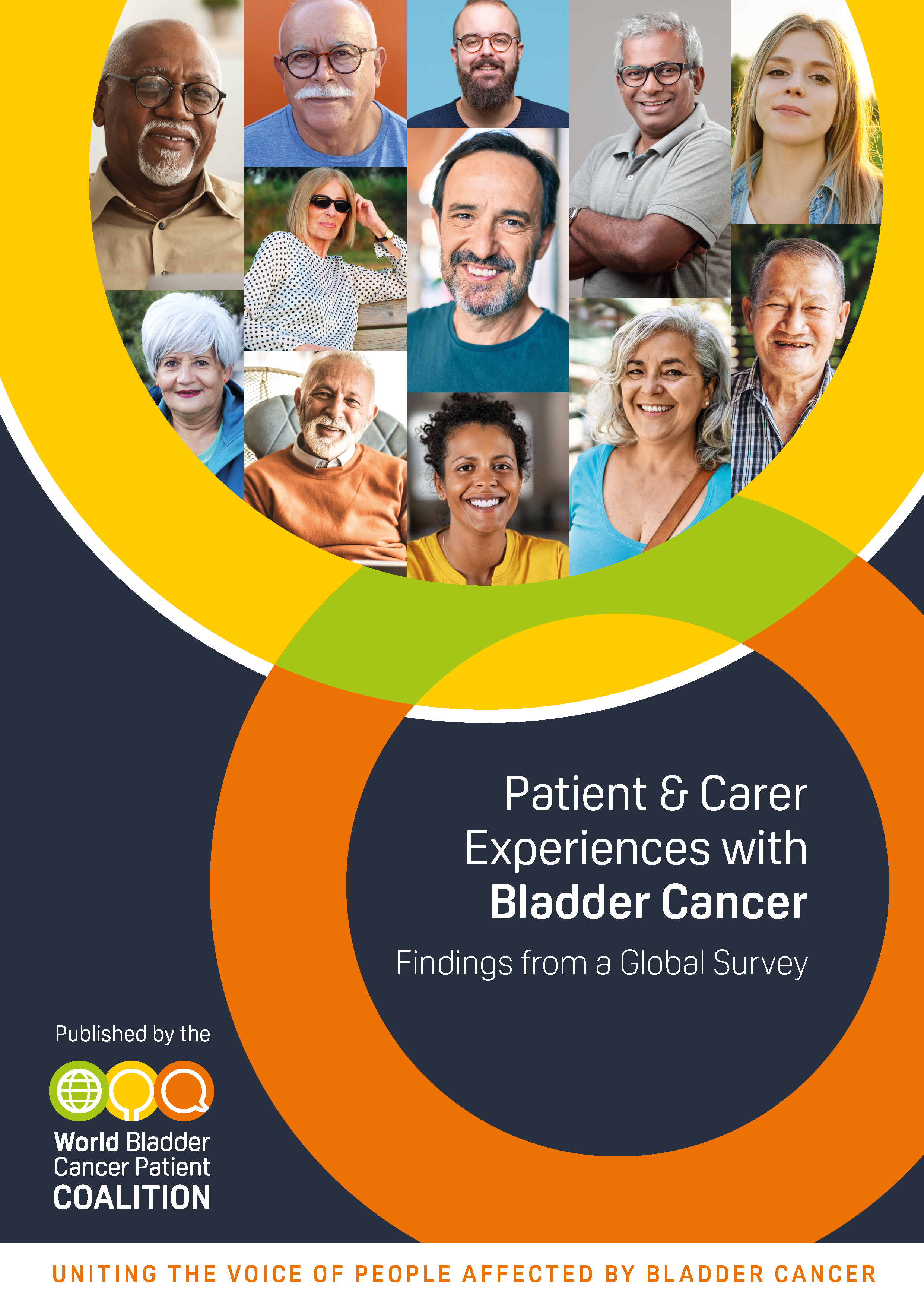
Key Findings - Bladder Cancer Patient & Carer Survey
Call to action
Drawing from the bladder cancer patient and carer experience findings presented in this report, and what is known from past research, the following priorities for action are recommended. Patient organisations, professional societies, healthcare system leaders, industry, and other stakeholders are encouraged to prioritise funding of projects, initiatives, and future work that will directly improve bladder cancer patient and carer experiences in these focus areas.
Our survey found low awareness of the common signs and symptoms of bladder cancer, prior to initial diagnosis. Awareness was especially low among younger respondents (under 55 years), possibly contributing to delays in diagnosis. Some respondents indicated in open-ended comments that they had seen public awareness campaigns in the UK and Canada helping them to recognise signs and symptoms of bladder cancer, and campaigns like these should be continued and expanded into other countries. Bladder Cancer Awareness Month in May should be harnessed to raise awareness among the public on the signs and symptoms of bladder cancer.

Our survey uncovered that a third of respondents did not have visible blood in their urine, necessitating strategies to help diagnose bladder cancer sooner. These may include screening of high-risk individuals such as smokers, those exposed to second-hand smoke, people with a family history of bladder cancer or people with regular exposure to carcinogens linked to bladder cancer. Additionally, women and young people (under 55 years) had relatively poorer experiences at diagnosis including having to see a doctor more times in order to be referred and feeling like initial symptoms were not taken seriously. Women had a higher likelihood of misdiagnosis, especially with urinary tract infections.

Resources and educational initiatives should be aimed at primary care providers and gynaecologists to support the detection of bladder cancer symptoms and early referral to a specialist, especially for females and young people (under 55). Symptoms in females are commonly attributed to infections or gynaecological conditions which delay diagnosis and treatment. Low incidence of bladder cancer in younger age groups and in women can often lead to symptoms being dismissed. Delays in diagnosing bladder cancer is associated with increased mortality, independent of tumour stage and grade.

The sexual impact of bladder cancer treatment is well known and should be mitigated by pre-treatment counselling and post-treatment support. However, almost half of all respondents in our survey who had a radical cystectomy were not counselled beforehand about sexual side-effects. Notably, males were more than three times more likely to be counselled before surgery about sexual side-effects, compared to females. In addition to providing counselling to all patients, health professionals should guide patients to resources offered by national patient support organisations.

Clinical trials investigate new therapies or treatment approaches and are the backbone of improving bladder cancer outcomes for future generations of patients. Clinical trial access was poor among survey respondents. There is a well described discrepancy in the clinical trial landscape, with the vast majority of patients not being offered trials despite being willing to participate (12, 13). These data suggest funding mechanisms could be aimed at increasing patient awareness and participation in trials, and that referral to an academic centre and/or a bladder cancer specialist involved in clinical trials should be discussed with each patient to improve access. In addition, patient organisations can guide patients to suitable clinical trials.

Almost all respondents needed more information throughout their bladder cancer journey, especially on prognosis, treatment options and side effects. Women and younger respondents were least likely to receive the information that they needed, suggesting the importance of prioritising resources and information towards these patient populations. Supportive services were lacking across diverse areas, such as diet and nutrition, exercise and activity, sexual function, sleep problems, alternative and complementary therapies, self-esteem and self-image, stoma care, bowel function, financial and employment issues, and smoking cessation.

Patient organisations play a crucial role in supporting patients, representing their views and experiences, and advocating for better care. Our survey found that nearly three quarters of respondents did not receive information about peer-support groups and charities. Moreover, the presence and availability of patient-support groups should be expanded to all countries, especially low-income countries, to ensure patients have somewhere to turn for local support when they are diagnosed with bladder cancer.
Emotional support should be offered to patients and carers, from initial diagnosis onwards. Over half of respondents were unable to get support for anxiety, depression, and stress despite needing it. Over half of respondents were not offered emotional support to help them cope with their diagnosis, and nearly a third of respondents did not receive enough emotional support throughout their treatment and care experience. This was most prominent in young respondents (under 55).

10% of respondents were severely impacted in their financial situation, and this was twice as likely for younger people (under 55). Additionally, younger people were also more likely to be temporarily off work. Bladder cancer patients and carers in all countries should be provided with the right to paid time off work, to attend appointments and receive treatment for their bladder cancer.

Carers often get little support or recognition for the work that they do but are essential for improving patient outcomes. They take on diverse and time-consuming roles – and as a result, many put the health of the person they are caring for above their own. There is an urgent need for increased support for carers globally, including providing information on how to care for someone with bladder cancer (especially on how to provide emotional support to the patient), offering paid time off work to fulfill caring responsibilities, and providing access to emotional support to navigate complex emotions that arise due to caring for a person/loved one with cancer.



